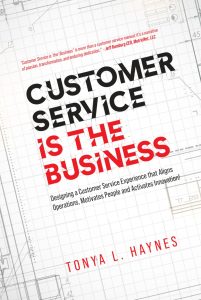Leveraging Feedback For Continuous Improvement In Company Operations
In the dynamic world of business, feedback is a powerful tool that can drive continuous improvement and enhance company operations, particularly in the realm of customer service. Read More
Understanding the Importance of Feedback
Feedback serves as a vital source of information that can help businesses align their operations with customer expectations. It provides insights into customer satisfaction, product quality, service efficiency, and potential areas for innovation. By actively seeking and responding to feedback, companies can:
- Enhance Customer Satisfaction: Feedback helps identify what customers value most, allowing businesses to focus on improving those aspects and boosting overall satisfaction.
- Drive Innovation: Suggestions from customers can inspire new product features, services, or enhancements that set a company apart from its competitors.
- Build Loyalty: When customers see their feedback being valued and acted upon, it builds trust and fosters loyalty, encouraging repeat business and positive word-of-mouth.
Collecting Feedback Effectively
To maximize the benefits of feedback, companies need to employ effective strategies for collecting it:
- Surveys and Questionnaires: Distribute surveys via email, social media, or directly on your website to gather structured feedback on specific aspects of your products or services.
- Social Media Monitoring: Pay attention to what customers are saying about your brand on social media platforms. Use tools to track mentions, comments, and reviews.
- Customer Interviews: Conduct in-depth interviews with a select group of customers to gain deeper insights into their experiences and expectations.
- Feedback Forms: Provide easy-to-use feedback forms at the point of sale or service completion to capture immediate impressions.
- Review Platforms: Encourage customers to leave reviews on platforms like Google, Yelp, or industry-specific review sites.
Analyzing Feedback for Actionable Insights
Once feedback is collected, it’s crucial to analyze it to extract actionable insights:
- Categorize Feedback: Sort feedback into categories such as product quality, customer service, pricing, and overall experience to identify patterns and trends.
- Identify Common Themes: Look for recurring themes or issues that customers frequently mention. These themes can highlight areas that require immediate attention.
- Prioritize Issues: Not all feedback requires the same level of attention. Prioritize issues based on their impact on customer satisfaction and business operations.
Implementing Changes Based on Feedback
Turning feedback into action is where real improvement occurs. Here’s how companies can implement changes effectively:
- Set Clear Objectives: Define clear goals for addressing the issues identified in the feedback. This could involve improving response times, enhancing product features, or retraining staff.
- Develop Action Plans: Create detailed action plans outlining the steps needed to address the feedback. Assign responsibilities and set deadlines for each task.
- Communicate Changes: Inform customers about the changes being made in response to their feedback. This transparency builds trust and shows that the company values customer input.
- Monitor Progress: Continuously monitor the implementation of changes to ensure they are effective. Gather follow-up feedback to evaluate the impact of the improvements.
Creating a Feedback-Driven Culture
For feedback to be truly effective, it must be ingrained in the company’s culture. Here are some strategies to create a feedback-driven culture:
- Empower Employees: Encourage employees to seek feedback actively and provide them with the tools and training needed to handle feedback constructively.
- Celebrate Successes: Recognize and celebrate improvements that result from feedback. This motivates employees to continue valuing customer input.
- Continuous Training: Provide ongoing training to employees on the importance of feedback and how to use it for personal and professional growth.
- Regular Reviews: Conduct regular reviews of feedback processes to ensure they remain effective and aligned with company goals.
Conclusion
Leveraging feedback for continuous improvement in company operations is a powerful strategy that can elevate customer service and drive business success. By understanding the importance of feedback, collecting it effectively, analyzing it for actionable insights, implementing changes, and fostering a feedback-driven culture, companies can stay ahead of the competition and meet the evolving needs of their customers. In a world where customer expectations are constantly changing, feedback is the compass that guides businesses toward excellence and long-term success.






